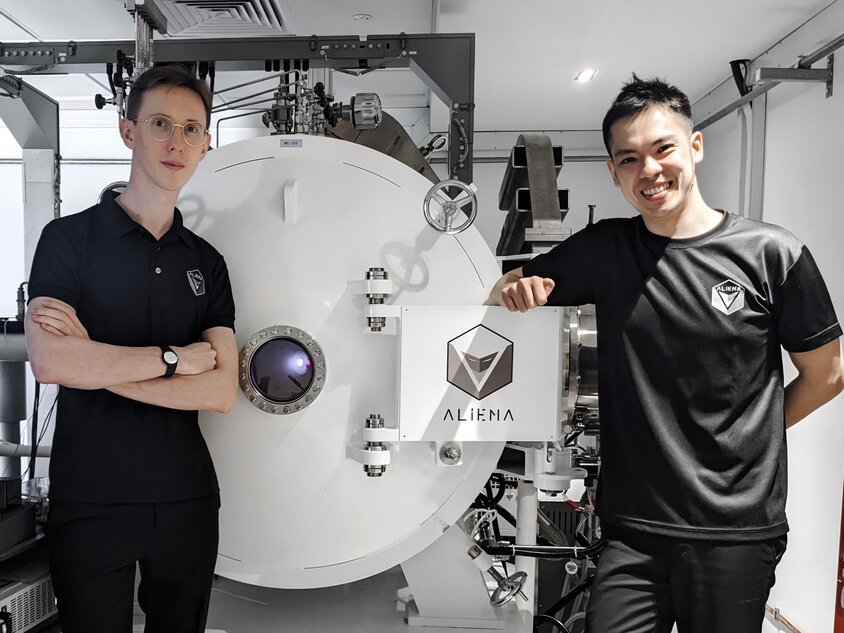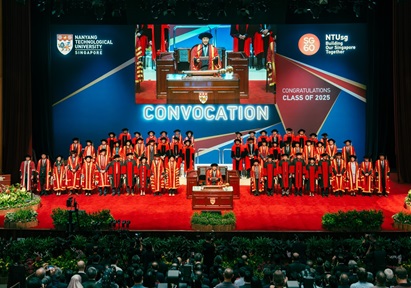Lightweight engine launched into space

Aliena, a tech spin-off from NTU Singapore, has today deployed into space a nanosatellite fitted with a fuel-efficient engine it has developed. The nanosatellite was sent from the SpaceX Falcon 9’s Transporter-3 mission which launched from Cape Canaveral Space Force Station, Florida, US.
The satellite’s engine, a Hall effect thruster, a type of ion thruster in which ions from the propellant are accelerated by an electric field, was invented and developed by Aliena. Compared to current satellite engines of its type, the new engine consumes just a fraction of power for its operation.
Aliena was founded in 2018, after founders Dr Lim and Mr Potrivitu met while working on their PhDs at the Space Propulsion Centre in NTU. The company received a grant by NTU’s innovation and enterprise company NTUitive in 2019, and the technology was test-bedded in the NTU Satellite Research Centre (SaRC).
Aliena first demonstrated the principles behind the engine’s modes of operation at SaRC. The team was provided access to SaRC’s facilities for the assembly of its prototype, and it was also where the engine first demonstrated a successful test launch, a milestone that the Aliena team said helped pave the way for Aliena to close its first oversubscribed funding round.
Spinning-off from NTU, Aliena was also supported by NTUitive through their flagship Strategic Research Innovation Fund (SRIF) that provided capital for the initial research and development required to advance the engine from its prototype.







